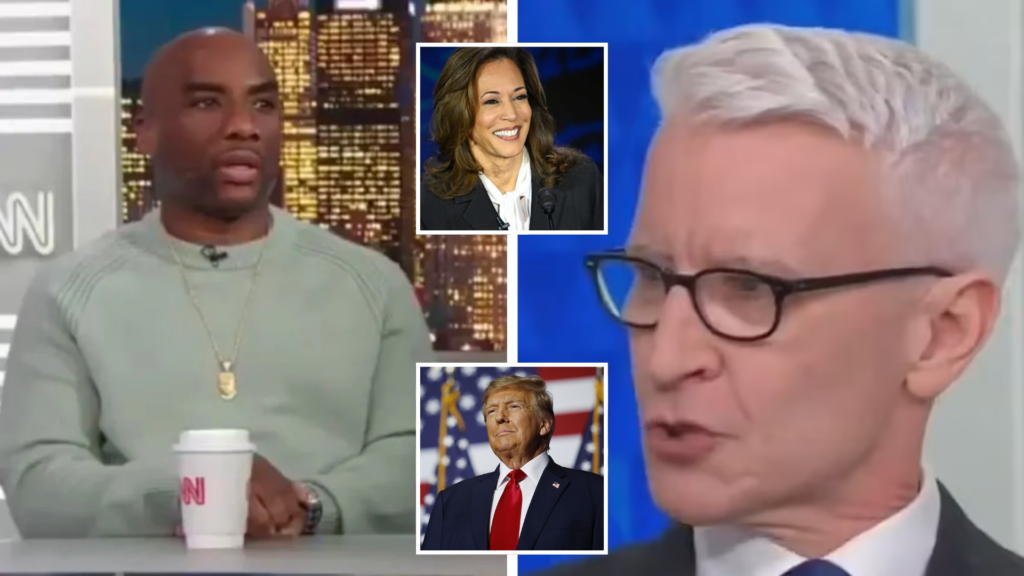
In a heated exchange on CNN, anchor Anderson Cooper and radio personality Charlamagne Tha God clashed over the media’s handling of coverage on Donald Trump compared to Vice President Kamala Harris.
Charlamagne argued that mainstream media networks like CNN were failing to address what he called Trump’s “fascist” actions, while also giving unwarranted attention to conspiracies around Harris’s identity, questioning her racial background or her credentials as vice president.
Charlamagne accused CNN of focusing more on conspiracy theories questioning Harris’s Black identity than on critical analysis of Trump’s statements and policies. He argued, “How come we’re not having a roundtable discussion asking is Donald Trump a fascist?
How come that is not the topic of discussion on networks like CNN every day?” When Cooper countered that Trump’s actions and statements were analyzed nightly on his show, Charlamagne pushed back, insisting there weren’t enough substantial conversations addressing Trump’s potential threat to democracy.
The argument intensified when Charlamagne stated he’s seen CNN panels discuss Harris’s racial background more often than Trump’s behavior.
Cooper immediately dismissed this, calling it “bulls—” and clarifying that while CNN may have hosted individuals with divisive views, there’s no standard practice at the network to question Harris’s background.
He noted that panels might sometimes include controversial opinions to reflect a wide range of perspectives, but that this didn’t equate to endorsing those views.
Charlamagne, however, maintained his stance, suggesting that the public is still unaware of the extent of Trump’s behavior and intentions.
He questioned why CNN and other networks weren’t addressing Trump with more scrutiny, mentioning that such coverage often comes with double standards, as seen in comparisons between Trump and his political opponents, from Hillary Clinton to Kamala Harris.
The conversation reached a high point when Cooper insisted that every significant statement made by Trump had been aired extensively.
“There is nobody on the planet who has not heard and seen pretty much everything Donald Trump has said,” he argued, defending CNN’s comprehensive coverage of the former president.
However, Charlamagne remained skeptical, countering that many people hadn’t fully grasped the implications of Trump’s rhetoric.
Charlamagne’s concerns reflect a broader criticism that networks may not treat Trump’s actions with the urgency some believe they deserve. Vice President Harris recently spoke at a press conference, citing an article in The Atlantic that labeled Trump as a potential “tyrant-in-waiting.”
She referenced Trump’s own remarks about using the U.S. military against Americans he views as adversaries, describing such actions as indicators of his intention to wield unchecked power.
During this press event, Harris argued that Trump’s language targets those he considers threats — “anyone who refuses to bend a knee or dares to criticize him,” including journalists, judges, and election officials.
She framed the upcoming election as a defining moment, stating, “We know what Donald Trump wants. The question… is what do the American people want?”
This ongoing debate exemplifies the growing frustration on both sides of the political spectrum about media bias, transparency, and coverage priorities.
Charlamagne’s appearance highlighted how some perceive a lack of focus on critical issues, while Cooper defended CNN’s approach as balanced and thorough. As the election season heats up, discussions around media representation and coverage of high-profile figures like Trump and Harris are likely to persist, reflecting an ongoing tension between public perception and journalistic practices.

